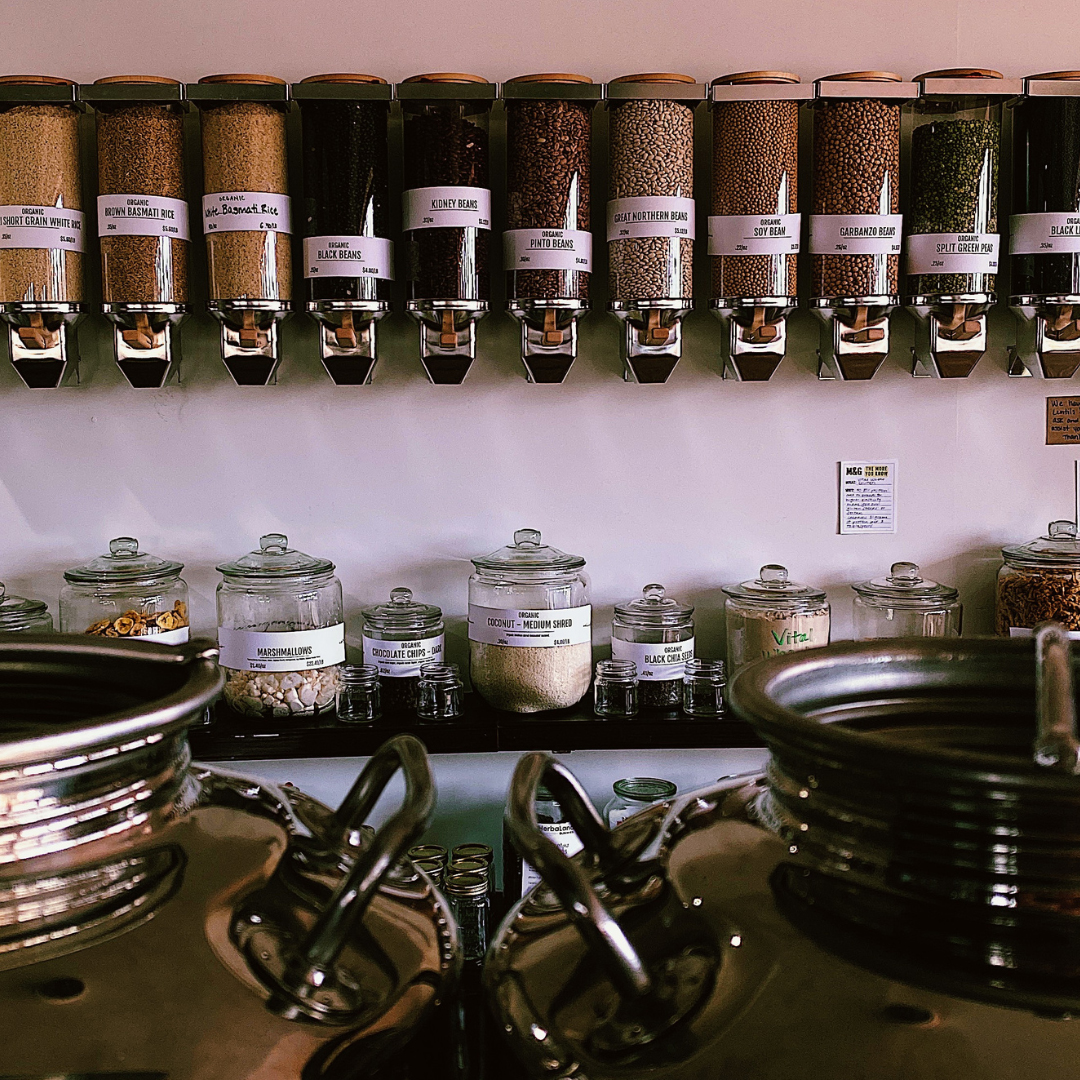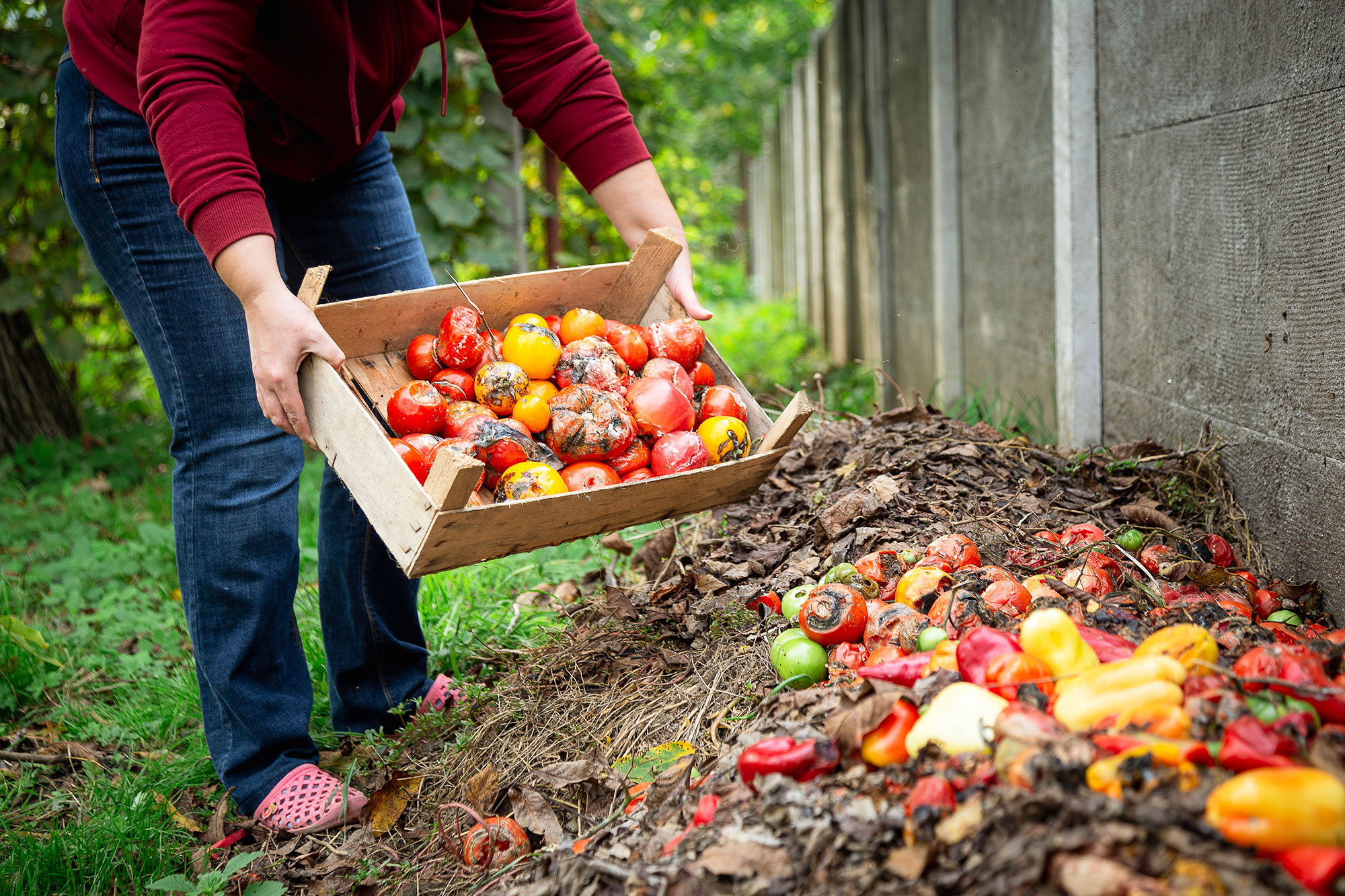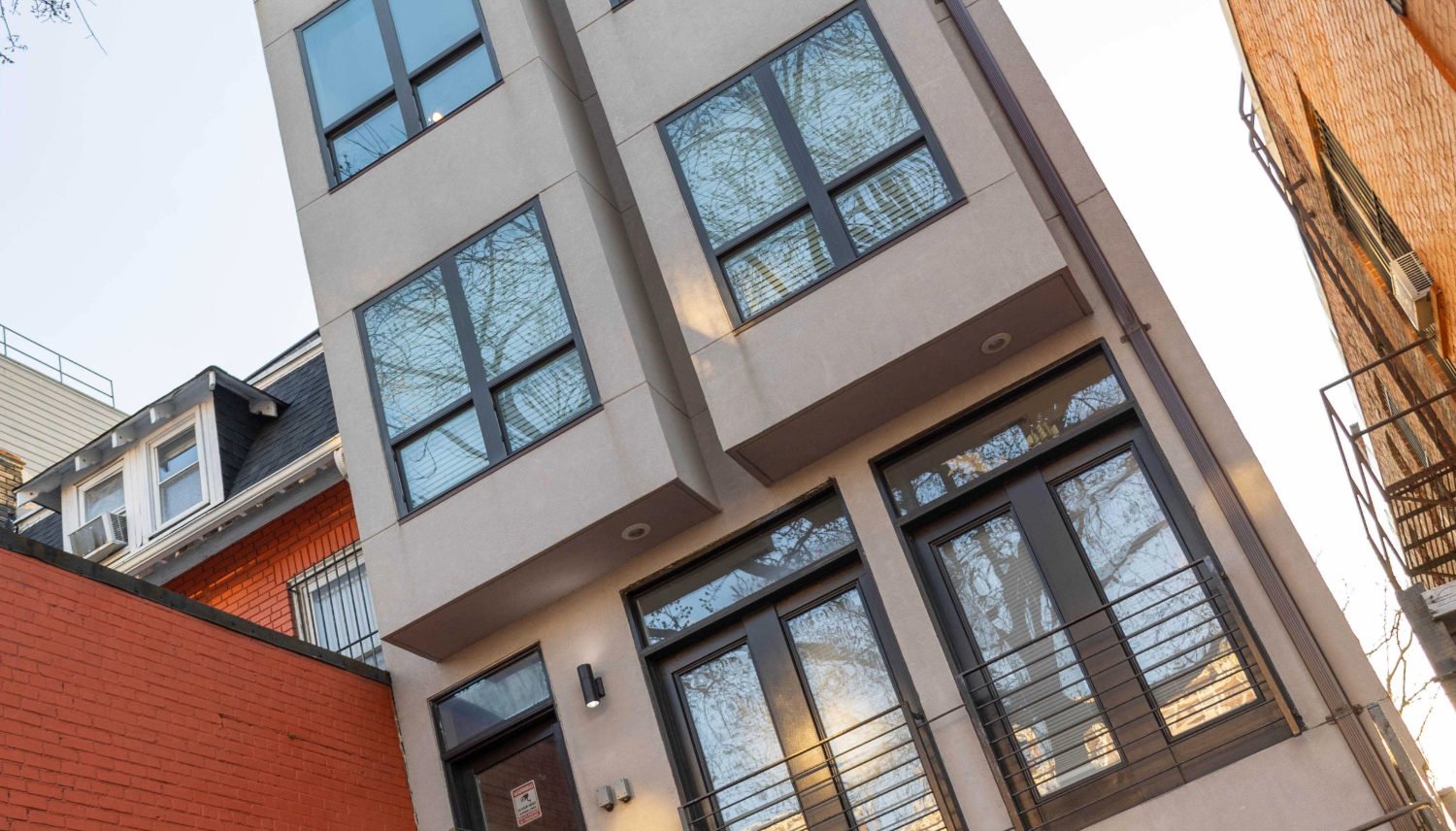You already recycle. You bike or walk when you can. Want to do more for the Earth? Here are other ways to be more sustainable—plus local agencies and companies that can help.
Try Composting

Composting may seem like a lot of work. And if you don’t have a garden, maybe you’re asking: Why do it?
For starters, you don’t have to use the compost yourself—you don’t even have to actually make it anymore. There now are local businesses designed to help, making it easier than ever to put your table scraps to good use.
According to a 2021 report from the Environmental Protection Agency, food waste constitutes 24 percent of the solid waste in landfills, and as it breaks down, it emits methane—a greenhouse gas that’s worse for the environment than carbon dioxide. Not only does composting food scraps keep them out of landfills, but it can actively offset other sources of pollution. According to the Institute for Local Self-Reliance, one acre of soil that’s amended with compost can take carbon out of the atmosphere in an amount equal to 75 percent of the annual emissions of one car.
Here are three ways to compost in a city-friendly (in other words, not-rat-attracting) way:
First—and requiring the least effort on your part—you can pay a company to drop off an empty container and then pick it up and compost your food waste for you each week. Compost Cab, Compost Crew, Key Compost, and Veteran Compost are four local options. They start around $32 a month, though individual plans vary. Some residents can get even better deals—for example, Key Compost has a pilot program whose service is free for some Frederick residents, and Compost Crew offers free and lower-price services to some residents of Falls Church, Chevy Chase, and more, based on local government subsidies and neighborhood participation. Depending on the company, the compost is put to use through partnerships with local farms and government programs as well as retail. Some also offer a portion of the compost back to you, should you decide to start your own garden.
If you want to save money and are willing to do a bit of the legwork, you can buy your own container for your kitchen, then drop off food waste yourself for composting. The DC Department of Public Works and the Alexandria Department of Transportation and Environmental Services have both set up collection sites at farmers markets. You can check out the programs at zerowaste.dc.gov/foodwastedropoff and alexandriava.gov/foodwaste.
Close to a MOM’s Organic Market? You can bring your food waste for free there, too. Compost Crew also has three Maryland outposts where you can drop your food scraps off yourself, whenever you want, for $10 a month.
For those who want to go full DIY, DC’s Department of Public Works plans to relaunch its home-composting program this year, offering workshops and a rebate of up to $75 to District residents for composting materials. Sistained8, a local compost-education company, offers classes as well as home-composting materials and news about local composting events.
Reduce Your Non-Food Waste

One common source of daily waste is the packaging that food and other products come in. Some companies are working to reduce that, too.
A relative newcomer to DC, the Rounds is a sustainability-focused refill-and-delivery service that drops off a variety of wellness, kitchen, and other household products at your door—via bicycle, of course—in refillable containers and reusable bags. You choose your products: everything from organic quick oats to dishwasher pods. Each week, or whenever you’re ready, someone will drop off refills and collect your old bags and containers to be sanitized and reused. Along with products that get refilled into reusable jars—baking soda, lentils, even M&M’s—you can bundle more traditionally packaged grocery items such as boxed soup, plus locally sourced items including Bethesda Bagels, into your delivery. The company promises comparable prices on goods; it charges a $10 monthly fee for membership.
Another option for waste-free shopping is Mason & Greens, which offers sustainable dry goods and groceries. In addition to vats of pastas, oils, and more, which you can purchase by the reusable-jarful, the company sells things such as reusable straws and sandwich bags. It has brick-and-mortar shops in DC and Alexandria—and just last month launched a service for District residents that delivers items free of plastic packaging.
Recycle—and Repair
Not sure whether or how to recycle something that’s not paper, glass, or plastic? DC has a website for that. At zerowaste.dc.gov, you can play a waste-sorting game or—definitely more useful—search the website’s database to find out how best to dispose of everything from batteries to mattresses. Some items may be part of a bigger District-wide recycling initiative. For example, eCycle DC is a program through the city’s Department of Energy & Environment that takes old electronics (doee.dc.gov/ecycle).
MOM’s Organic Market is another great resource for recycling—it accepts electronics, batteries, shoes, wine corks, and more; check the full list on its website. And if there’s any chance your item, electronic or not, might be fixable, check the DOEE’s website for a “fix-it” clinic, where residents can take broken or non-functioning items—electronics, sewing machines, bikes, textiles, and more—for help with troubleshooting and potential repair.
This article appears in the April 2023 issue of Washingtonian.














